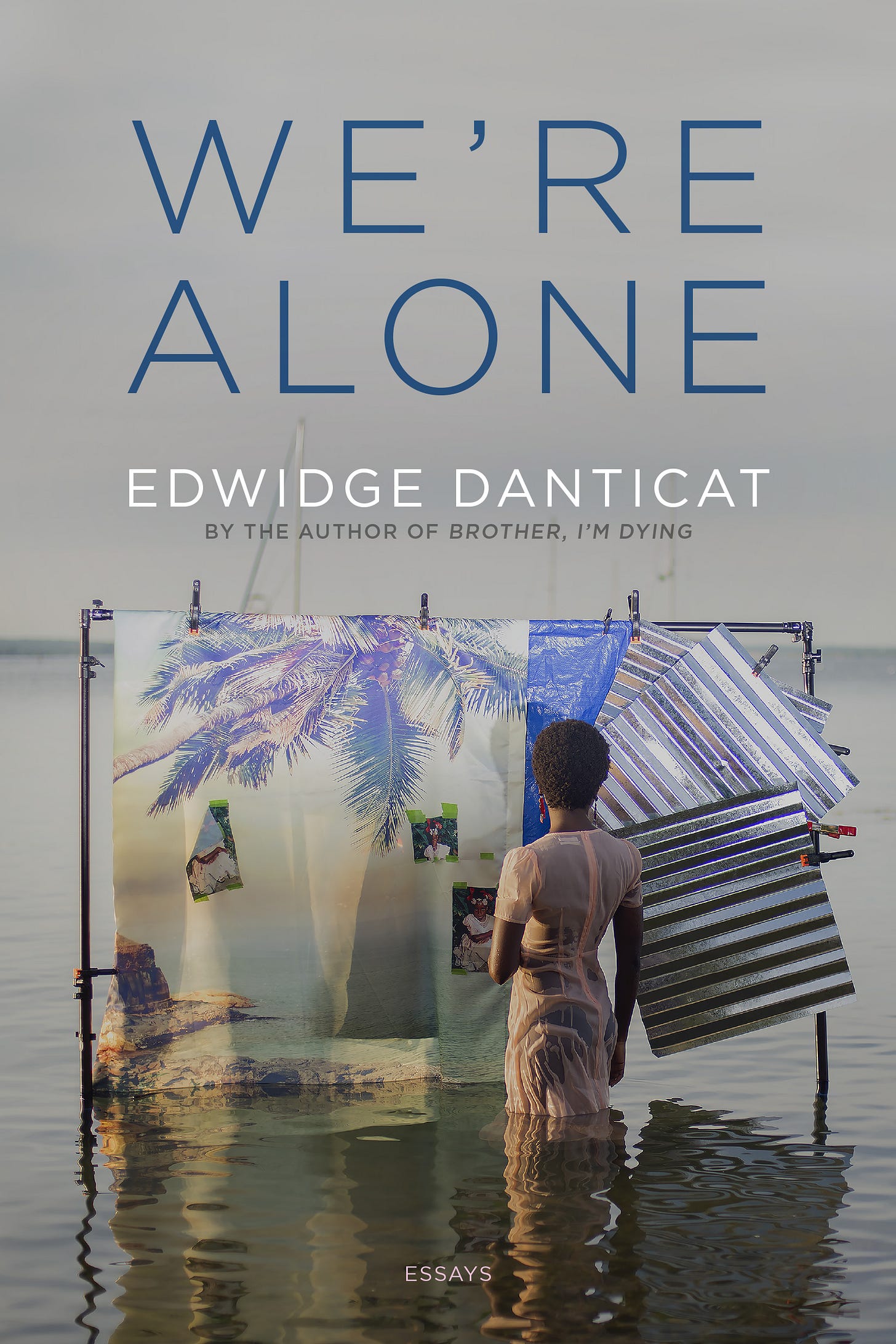Introducing We're Alone Now by Edwidge Danticat
The October Audacious Book Club Selection
Edwidge Danticat’s new essay collection We’re Alone begins with a reflection on a poem by Roland Chassagne and a line she borrows for the book’s title. The phrase suggests both solitude and togetherness: “We’re alone with the persistent chorus of the deserted, as in no one is coming to save us. Yet we’re alone can also be a promise writers make to their…




